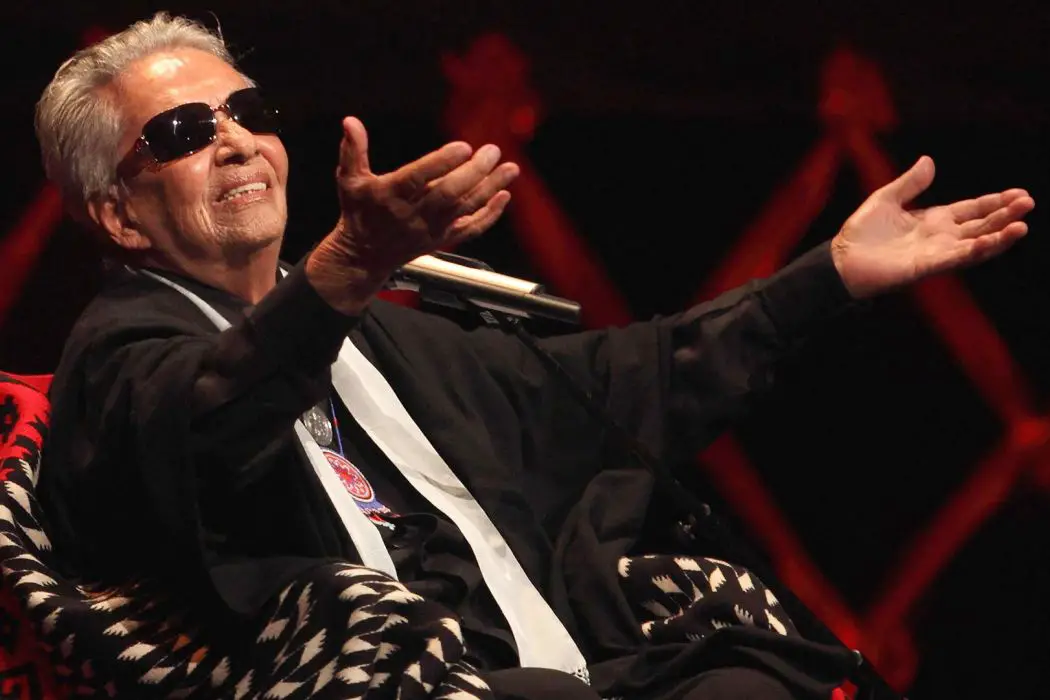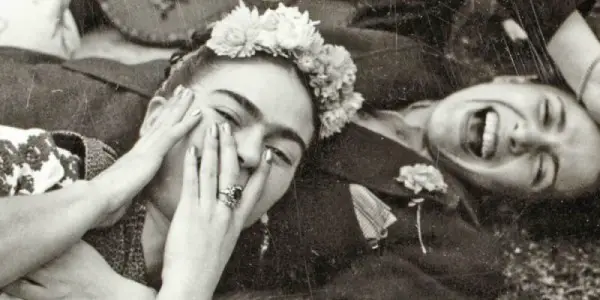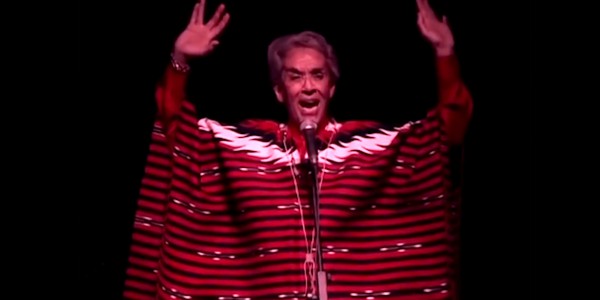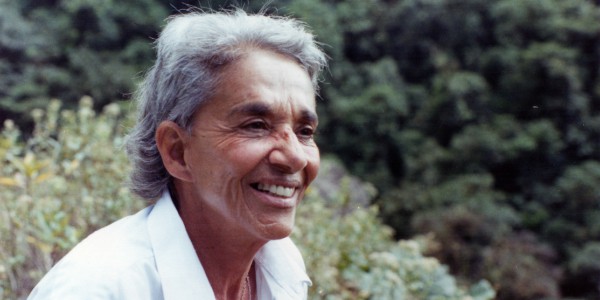CHAVELA: A Warm Portrait Of An Extraordinary Woman

It took me a while to discover the wonderful world…
Pedro Almodóvar is the most famous fan of celebrated ranchera singer Chavela Vargas to feature in this documentary. Chavela and Almodóvar were great friends and admirers of each other’s work. Chavela was Almodóvar’s muse; he says in the film, “In her voice, I found one of my best collaborators”. In return, she called him, ‘her husband on this earth’.
The tale behind their close relationship is just one of many that make up Chavela.
So Who Was Chavela Anyway?
Born in Costa Rica in 1919, Isabela Vargas Linzano, or Chavela, as she would come to be known, was an unhappy child in an unhappy family. Awkward and boyish, she didn’t fit in anywhere, to such an extent she was often hidden by her parents during social gatherings. Singing was all that brought her joy, and so at the tender age of fourteen she moved to Mexico to pursue a career in music.
Though she had a tremendous voice, her macho manner meant she only ever got booked for small stages in Mexico. Ranchera (traditional Mexican music) singers were, as a rule, pretty and feminine. In Chavela’s own words, “Dressed like a woman, I looked like a transvestite.” Her nonconformity to the typical ranchera style made her stand out from the crowd and bought her notoriety.

Word quickly spread about Chavela’s amazing music, and she garnered many fans. People came from thousands of miles away to hear her soul-stirring voice. She had a love affair with Frida Kahlo, and (allegedly) Ava Gardner. Though her alcoholism put a stall to her career for a decade or two, it wasn’t long before Chavela Vargas was once more performing to ever-growing audiences, on ever-growing stages, all the way up until the end of her life.
Accessibility And A Way With Words
Before watching this film, I had no idea who Chavela Vargas was. Happily, co-directors Catherine Gund and Daresha Kyi have made sure that that is no problem. Chavela doesn’t assume knowledge; the people we see discussing the singer’s life make sure everything is explained or contextualised. It is a film well suited for new audiences, though existing fans are sure to enjoy the many featured performances and reminiscences from some of Chavela’s dearest friends.
The accessibility to newcomers and global audiences is most obvious in the fact that the clips of Chavela singing are accompanied by subtitles. It can be a common source of frustration when listening to foreign-language music to not have any idea what the singers are singing so passionately about, and the simple decision to translate the lyrics is a very wise one. This is especially true as the songs are arranged within the documentary so that they comment on what we have just learnt from an interviewee, making the words even more important.
Talking of words, it’s fair to say that this documentary has a way with them. Obviously a lot of this stems from Chavela herself. Though she died in 2012, Gund and Kyi have filled their film with interview footage with the singer, and nearly everything she says sounds like a song lyric. Of Frida Kahlo; “Her eyebrows together were a swallow in mid-flight”. Of the emotional toll of her many love affairs; “Love is so brief, and yet forgetting takes so long”. It’s like she had been singing in poetry for such a long time, that she couldn’t help but speak in it too.

It isn’t just Chavela with a way with words though. The documentary is populated by people who loved the singer and, almost in tribute, the language they use is lyrically similar to hers.
Chavela’s life was full of fleeting affairs, but she did have a years-long relationship with Alicia Elena Pérez Duarte, a lawyer recruited by a friend to help the singer out when her alcoholism was starting to cause legal trouble. Duarte describes Chavela as “a vital experience that transcended everything”.
Others try to capture the potency of her voice with their words. Owners of the club that hosted her triumphant return show say, “She wasn’t a little fountain, she was a tremendous canyon.” Singer songwriter Miguel Bosé describes the power of her singing; “You got the sensation that right now, singing this song, she was going to die. She gave so much emotion that she could die”. Chavela’s music does transcend words, and it’s great that the documentary features many of her performances. But it is the intensity of the spoken language that conveys how much she was adored by so many.
Warm, But Never Hagiographic
Chavela is a warm documentary because everyone we see speak knew the singer and loved her deeply. It’s moving to see the depth of this love, and hear stories about how she touched so many lives. Though it is a loving portrait , the film never veers into hagiography, or tries to smooth out the many rough edges of a life that was full of pain and bad decisions. Chavela was no angel, and to its credit, the documentary never tries to pretend that she was.

As well as a way with words, Chavela had a way with women, and it often got her in trouble. She was dropped from a record label for sleeping with the wife of an executive. She had affairs with innumerable women – one interviewee goes as far as to say that “She slept with the whole of Mexico!” Though that is clearly an exaggeration, from everything we see in the documentary, it doesn’t seem too much of one!
More than her womanising though, it was the alcoholism. It cost her (after falling down drunk one time too many she was barred from performing and went so far into obscurity that she was considered dead by many), but it also cost others. Though Duarte says that Chavela could be violent when sober, the drink didn’t help matters. At one point Chavela ripped so much hair off of Duarte’s head that a piece of her scalp came with it.
The darker side of the singer is not papered over or excused, but neither is it dwelled upon or treated salaciously. Gund and Kyi put more attention into Chavela’s work for the LGBT community and the way she spoke out for others who were struggling. There’s good and bad in everyone, and the co-directors of Chavela are wise to acknowledge it.
In Conclusion: Chavela
In Chavela, Catherine Gund and Daresha Kyi have crafted a documentary that works just as well as an introduction to the legendary ranchera singer as it does a fond remembrance for those who knew her well. Packed with her beautiful music, and made with insight and great love, Chavela is a lyrical, textured portrait of a complicated woman.
Have you seen Chavela? What did you think?
Chavela is released on October 4th in New York City, on October 6th in Los Angeles. For all other release dates, click here.
Does content like this matter to you?
Become a Member and support film journalism. Unlock access to all of Film Inquiry`s great articles. Join a community of like-minded readers who are passionate about cinema - get access to our private members Network, give back to independent filmmakers, and more.
It took me a while to discover the wonderful world of cinema, but once I did, everything just fell into place.













